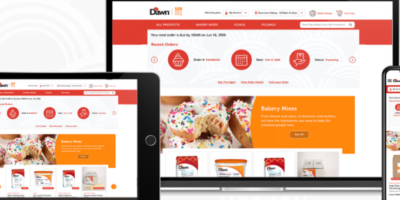
The COVID-19 pandemic has accelerated the adoption of ecommerce channels, even amongst older generations which have confirmed most reluctant to transition from bodily to on-line retail. On the similar time, we’re seeing a wave of client activism sweep the nation, by which a rising group of shoppers is deciding which manufacturers deserve their cash based mostly on the values they display as corporations. On the intersection of those two traits, on-line and multichannel retailers are fully remodeling their client segmenting and focusing on methods to replicate the brand new actuality.
With that stated, as ecommerce manufacturers shift to accommodate older generations of web shoppers, they are going to do nicely to not broadly overlay their newfound client activist insights on all segments. In spite of everything, not each U.S. client is a client activist; the necessity for an organization’s values to align with their very own varies amongst generations. At Resonate, we not too long ago checked out how 4 main generations differ of their method to client activism and which of them care essentially the most about how carefully a model aligns with their very own private values. Right here’s what on-line retailers want to notice.
Child Boomers, ages 54-72
Many consumers in the present day think about their purchases to be an extension of their views, beliefs and life, however in accordance with our evaluation, child boomers don’t essentially really feel that method. For a lot of child boomers, manufacturers exist solely to promote services and products they want. Shopping for from them is nothing deeper than a surface-level transaction.
Boomers choose corporations that worth merchandise pretty and supply protected merchandise. They’re 34% much less probably than the common client to hunt out corporations that scale back power use, 29% much less more likely to choose corporations that donate to charities, and 23% much less more likely to choose corporations that take heed to the general public.
Child boomers gained’t pay extra based mostly on an necessary problem, share their opinion of an organization or have interaction in an organization’s societal program. They’re 18% much less more likely to care a couple of model’s repute, 30% much less more likely to criticize an organization for not doing sufficient for the setting and are admittedly unengaged in advocacy points. Model worth alignment just isn’t a high precedence for them in relation to making buy selections. Subsequently, when boomers are your target market, you would possibly need to maintain again on pledging allegiance to a particular trigger and put your efforts and assets towards creating an economical and protected product.
Gen X, ages 38-53
Gen Xers grew up lengthy earlier than the rise of the purpose-led model and had been largely indifferent from the web and social media once they fashioned their buying habits. They don’t count on a lot from corporations apart from the services or products they’re paying for and don’t see shopping for or not shopping for from an organization as a political or social assertion.
Gen Xers choose corporations that worth merchandise pretty, however don’t notably care if corporations donate to charities, scale back power use or take heed to the general public. Gen Xers obtain apps from manufacturers and observe them on social media, however solely 12% of Gen Xers pays extra based mostly on an necessary problem. They like merchandise which can be family-friendly and don’t care whether or not they’re produced sustainably. They’re additionally 16% much less more likely to care a couple of model’s repute. When Gen X is your goal demographic, it’s necessary to notice that this phase most likely isn’t involved whether or not their private values align together with your model, so it shouldn’t be a significant a part of your advertising technique.
Millennials, ages 21-37
The millennial era is essentially the most racially and ethnically various within the nation’s historical past and got here of age throughout the web explosion. This era is keen about holding manufacturers accountable for his or her positions on social and political points, and social media has given them a platform to share their tales and enlist the assistance of the general public to deliver consideration to a model’s function and values.
Millennials’ high consider deciding the place to buy is predicated on a model’s repute. They’re 32% extra more likely to choose corporations that scale back power use, 30% extra more likely to choose ones that donate to charity, 22% extra more likely to choose ones that scale back packaging and 20% extra more likely to choose corporations that take heed to the general public. Millennials are extremely keen to take part in a model’s societal program and pay extra based mostly on a particular problem. They’re 40% extra more likely to analysis corporations to seek out out about their contribution to inexperienced initiatives and 27% extra more likely to criticize corporations that aren’t “inexperienced” sufficient.
The charitable causes millennials care most about are at-risk youth, local weather change and poverty. Yow will discover them on Reddit, Snapchat and Instagram and streaming YouTube Premium, Disney+ and HBO Now. Take into account highlighting any assist you’ve given to the causes they’re keen about or spotlight the methods by which you’ve contributed to bettering inexperienced efforts so as to entice and retain millennial shoppers, particularly since 81% of millennials need the businesses they purchase from to follow enterprise sustainably and ethically.
Gen Z, ages 18-20
Resonate solely focuses on the U.S. grownup inhabitants, so our insights don’t embrace the youthful portion of Gen Z. However for that portion we do cowl, we discover that this era has the best expectations in relation to manufacturers; 87% of Gen Zers say they count on extra from manufacturers than simply merchandise. Gen Z is extremely engaged with advocacy points, however 54% much less more likely to be politically engaged. Clearly, this group is extra involved with the social points affecting our nation over political ones.
If Gen Z is your target market, you would possibly need to think about avoiding political stances and keep on with social points. They’re 43% extra more likely to assist corporations that scale back their power use, 40% extra more likely to assist ones that scale back packaging and 36% extra more likely to assist people who donate to charities. Their high charitable points are local weather change, at-risk youth and pure useful resource preservation. They’re 39% extra probably than the common U.S. client to have interaction in an organization’s societal program and 91% extra more likely to resolve the place to buy based mostly on a model’s repute.
Resonate is a analysis agency and consultancy that analyzes U.S. client information.
Favourite




















